**All conference keynotes are now available for online conference delivery as well as for webinars/ break out rooms etc.**
I deliver keynote presentations on a range of topics. These are always bespoke responding to the conference theme and the makeup of the audience. My priority is on delivering content that will inspire and inform as well as being focused on having a direct impact on practice. I endeavour to link to recent research and the latest theoretical developments. All keynotes are supported with addition supporting information and links for further reading.
I have delivered conference keynotes to a wide selection of clients both in the UK and internationally – ranging from 100 to 2000 delegates. These have been for National Charities, Teaching School Alliances, Local Authorities and Departments of Education.
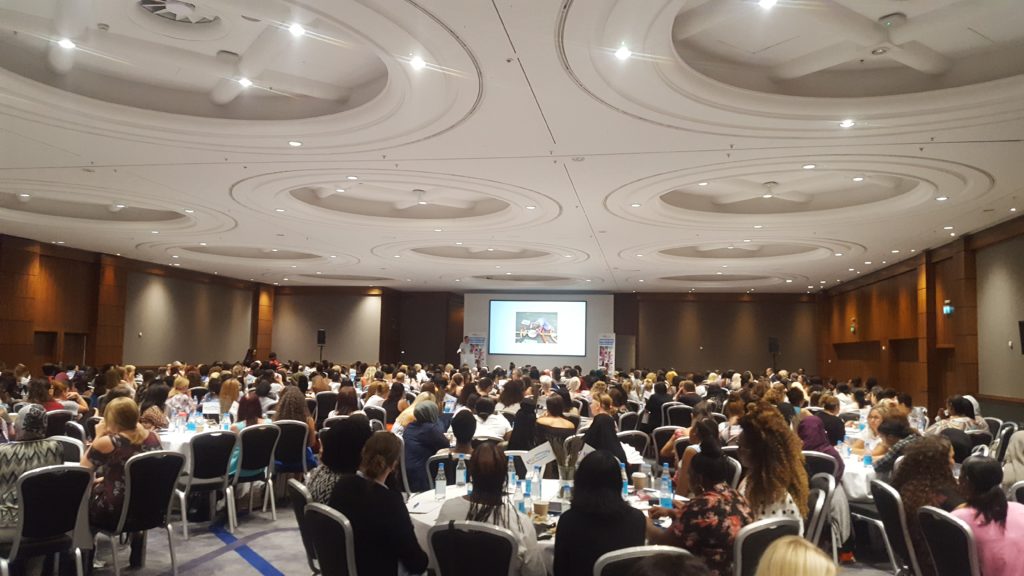
London Early Years Foundation, London
Examples of early years keynote presentations include:
Creativity: Nurturing Creative and Critical thinking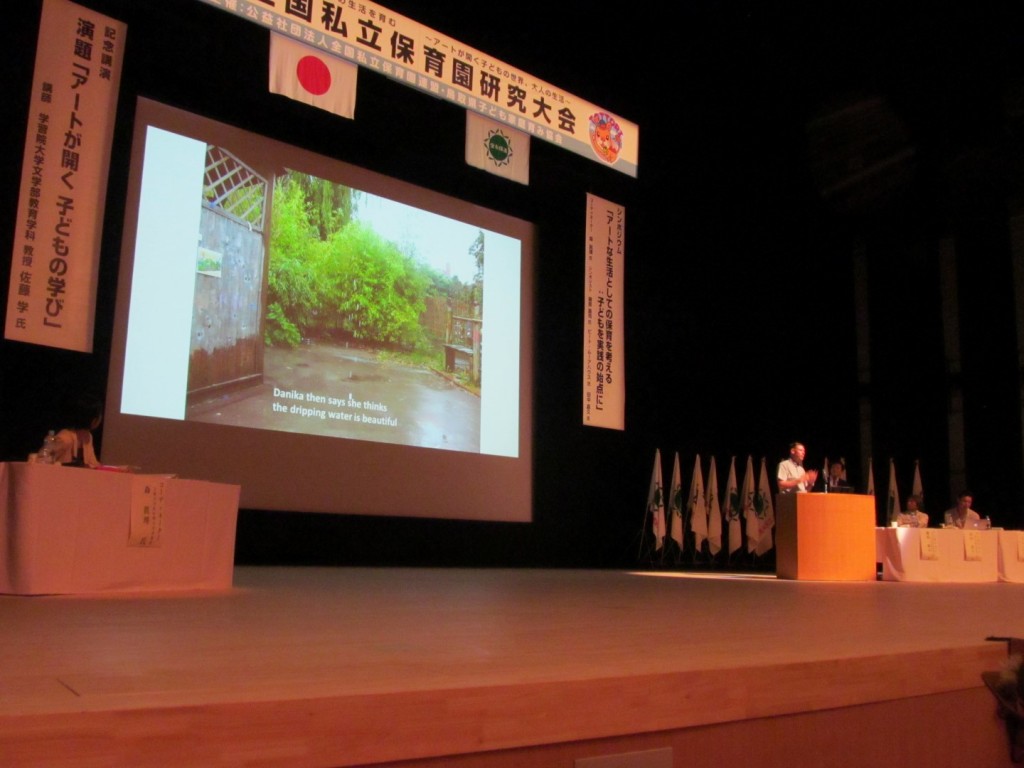
Woodwork in Early Years Education
Powerful Learning Environments
Characteristics of Effective Learning
Active Learning
The Role of the Visual Arts
Valuing the Outdoors – Nurtured by Nature
Making and Crafting in Early Childhood Education
Risk and Challenge in the Early Years
The Language and Dialogue of Children’s Photography
Nursery Schools Association, Japan
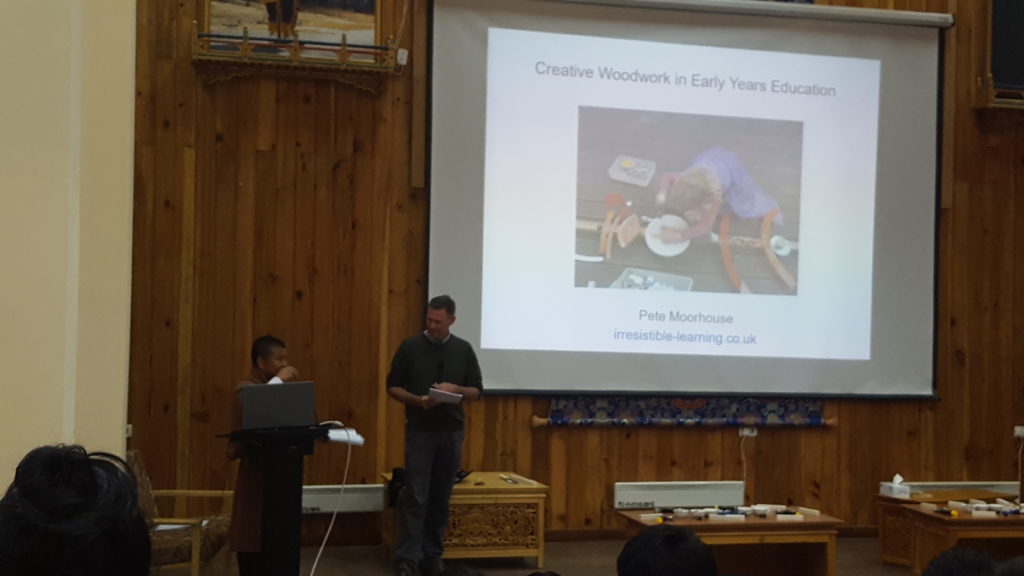
IAEC/ UNICEF Bhutan
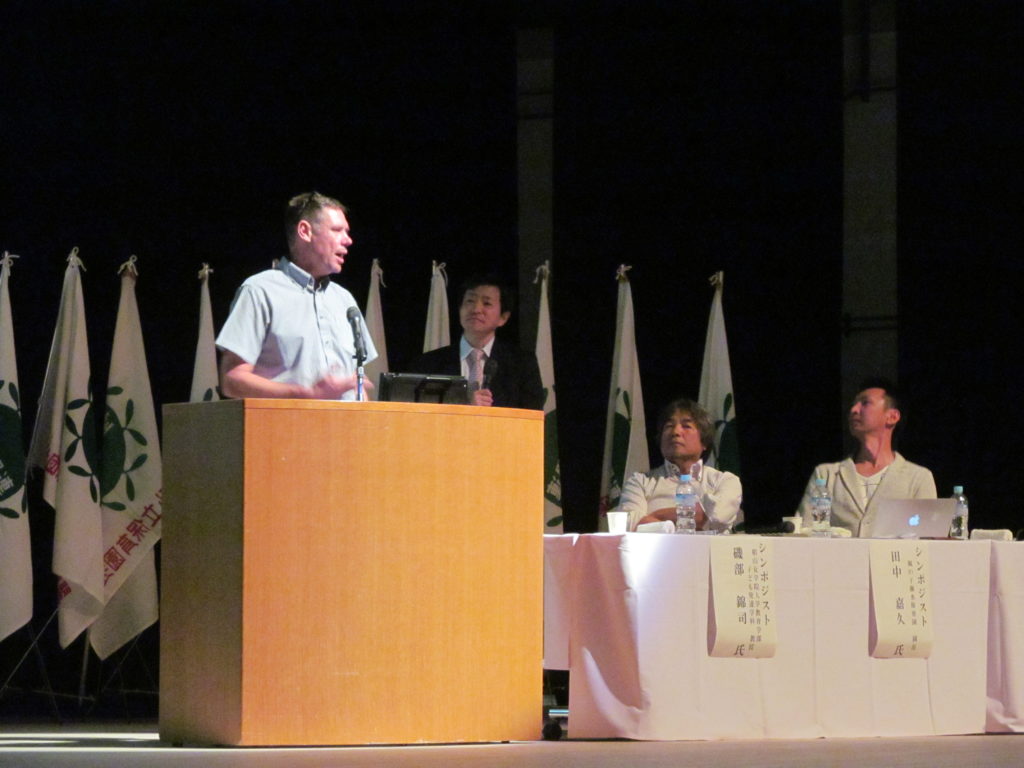
Creativity in Education, Japan
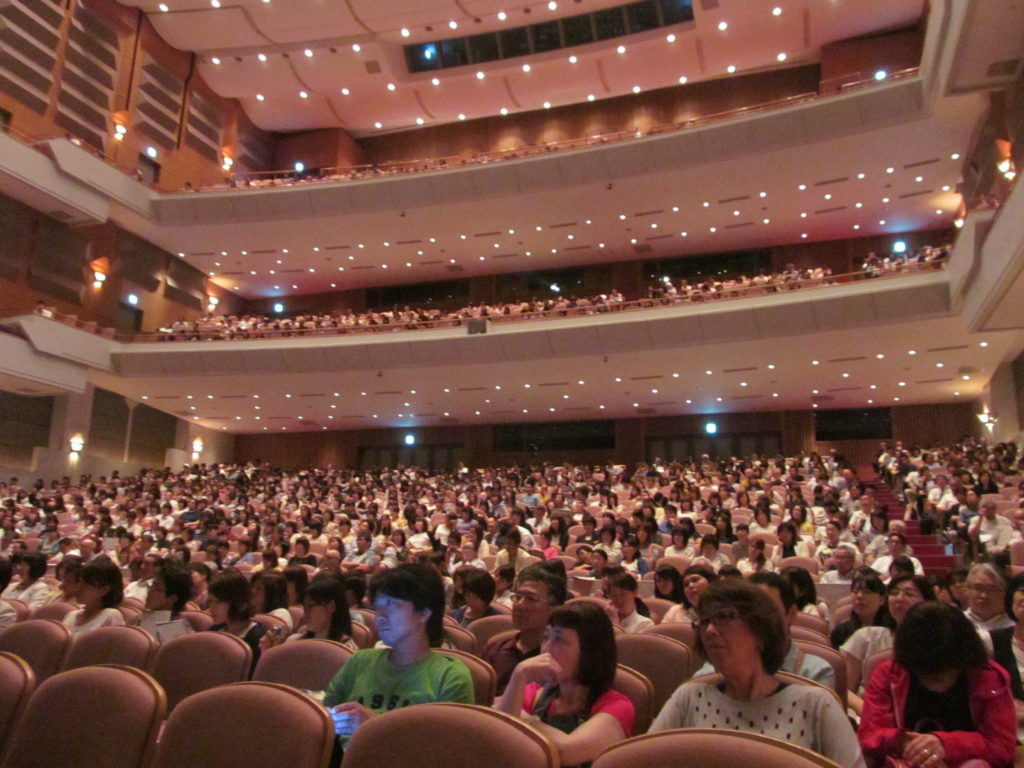
Conference workshops/ Labs:
In addition I offer a selection of conference workshops: Usually these about 1 hour but can be up to 2 hours. Workshop contain theory and practice and will be a combination of some presentation, practical work and discussion. All workshops have accompanying hand-outs.
Nurturing Creativity: Creative and Critical thinking skills
Learning from the Reggio Emilia Approach
The Wonder of Woodwork
Working with Intelligent Materials
The Language and Dialogue of Photography
The Enabling Environment – The Third Teacher
Characteristics of Effective learning
Paper and card: Unfolding Possibilities
Clay: Ideas taking shape
Wire: Drawing in space
Block Play: Building foundations
Loose Parts: Languages and landscapes
STEM: Engaging and Inspiring
Studio practice: The Spirit of the Studio
Workshop content is based on CPD content:
Click on the links below to view CPD content as downloadable pdf:
Introducing Woodwork in Early Years Education
The Characteristics of Effective Learning
Encouraging Creativity in Early Years Education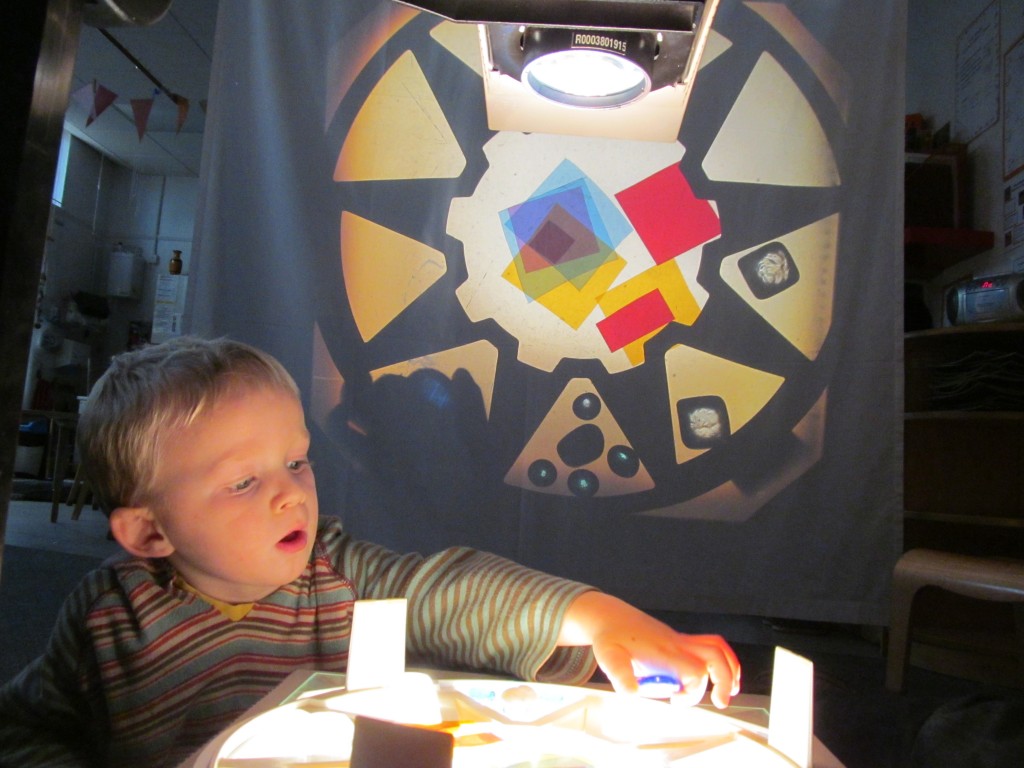
This course is designed to develop understanding of what creativity means and explore ways in which we can best encourage creativity. We will start by defining creativity and critical thinking and then looking at the different aspects of children’s thinking that contribute to the process of developing ideas.
I will emphasise the importance of creativity as a fundamental skill that not only impacts on all areas of learning but also impacts on young children’s long term outcomes to become resourceful and resilient adults. We will look at EYFS and see how creativity fits within the characteristics of effective learning and how it embraces all areas of learning. The training will explore the many factors that contribute to children’s creative and critical thinking, from the impact of the environment to working together with parents. We will look at the role of the teacher in extending their thinking by looking at sustained shared thinking practice and how best to interact with children during the creative process.
We will also consider ways in which we can monitor children’s creative progression especially in relation to their developing thinking skills.
From this course you will:
- Gain a thorough understanding of what creativity means
- Learn why creativity is so important in education and in life in general
- Look at the many elements that contribute to encouraging and nurturing young children’s creativity
- Investigate the role of the teacher in extending creative and critical thinking
- Look at the role of the environment and resources
- The importance of documentation and reflective learning practice
- Working together with parents to support children’s creative thinking
- Opportunity for practitioners to get creative exploring different materials
- View examples of inspiring provocations
- Think about ways of monitoring children’s creative progression
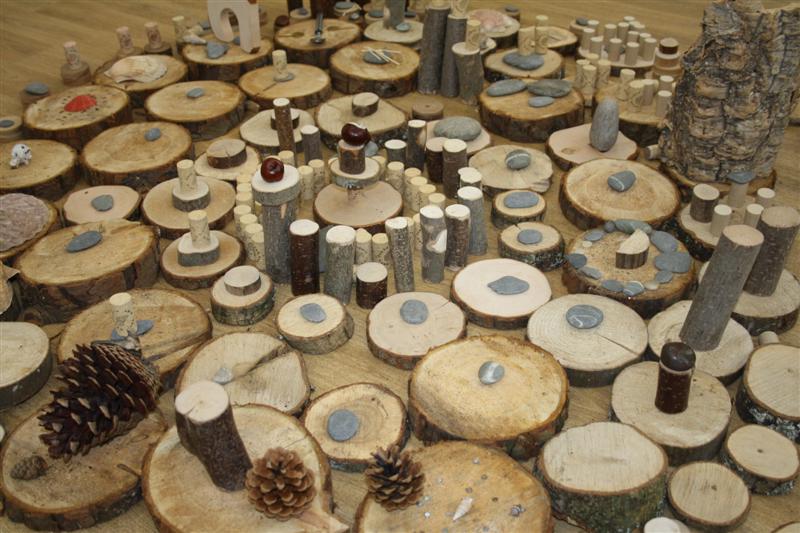
Learning from the Reggio Emilia Approach
The Reggio Emilia approach is a world renowned educational philosophy originating from the preschools of Reggio Emilia in Northern Italy and was inspired by Loris Malaguzzi following the Second World War. Central to the philosophy is the importance of creativity and developing the child as a confident independent thinker. The Reggio approach is a body of pedagogical thought and practice – the result of many years of commitment to young children and their families and pedagogy builds on many previous educators such as Froebel, Dewey and Vygotsky. There are several aspects of the Reggio early years school system that stand out. Central is a powerful image of the child – strong, competent, and naturally curious about the world and capable of constructing their own learning. Relationships are valued with children, teachers and parents seen as being equally important. There is much emphasis placed on developing children’s creativity and the importance of the environment to facilitate this.
From this course you will develop an understanding of:
- The teacher as co-learner, emergent curriculum, children with direction over their learning
- The 100 languages of children– the endless opportunities for creative expression
- The role of Atelieristas – artists in residence/ studio spaces
- The importance of the environment – physical space/resources as third teacher
- The value of high quality reflective documentation
- Parents as partners. How Reggio practitioners work together with parents
- Working together with the local community
- Long term project work
- Pete will share first-hand experience of visiting schools in Reggio Emilia
- Observe examples of practice and environments
Introducing Woodwork in Early Years Education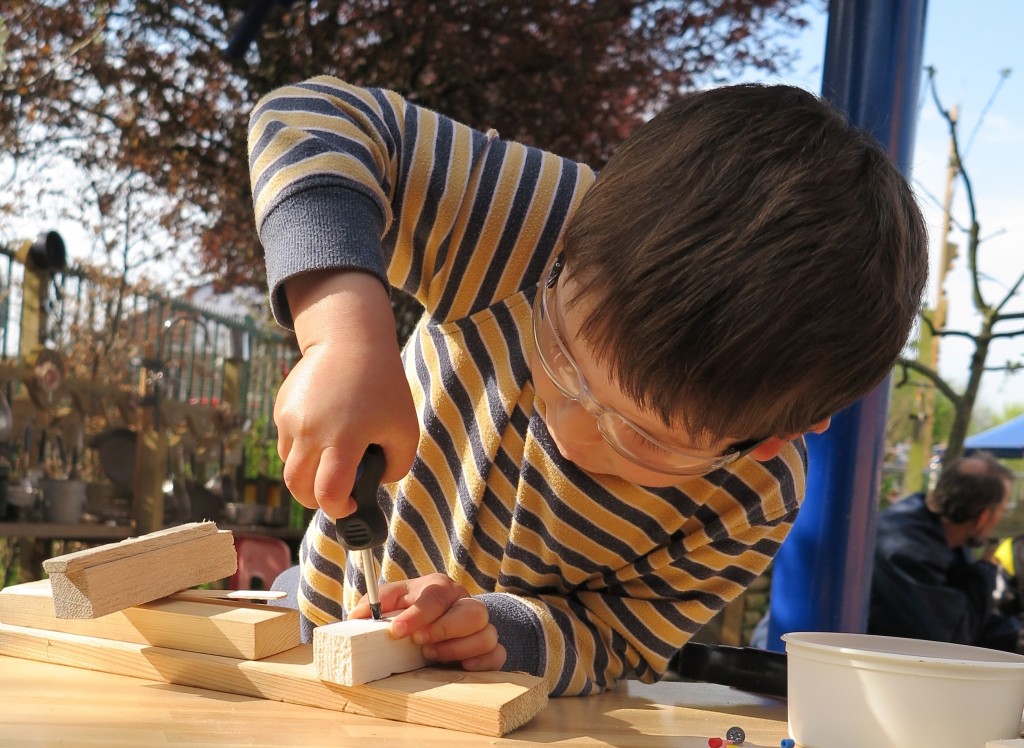
Woodwork is hugely popular and provides a rich source of enjoyment as well as learning. The impact is profound and long term. Deep levels of engagement and intense concentration are common and the children often remain involved in their explorations for extended periods. Woodworking allows children many opportunities including; expressing their imagination, problem solving and sustained perseverance with challenging tasks. The learning outcomes have been remarkable and encompass all areas of the EYFS.
This practical workshop will look at ways in which woodworking can be safely introduced in your early years settings. We will look at the theory and how woodwork meets many learning and development aspects of the EYFS. We will examine the historical context and look at examples from other countries that have been working successfully with wood for many years. There will be explanations of the most suitable tools for young children and instruction on how best to use them. We will look at the most suitable woods. Information on potential suppliers of wood/ tools will be provided. Explanations on how to set up a woodworking area. Suggestions for activities, open-ended explorations and longer term projects. There will be practical sessions for practitioners to explore the tools, gain confidence and share the experience of making creations in wood.
From this course you will:
- Understand the value and theory of woodwork.
- Learn about the historical context of woodwork
- Understand the potential of woodwork for creativity and critical thinking
- Learn how to introduce woodwork safely, implementing an effective risk assessment.
- Understand the most suitable tools for young children and how to use them.
- Be confident to develop a woodworking area.
- Know where to buy the most appropriate tools and materials
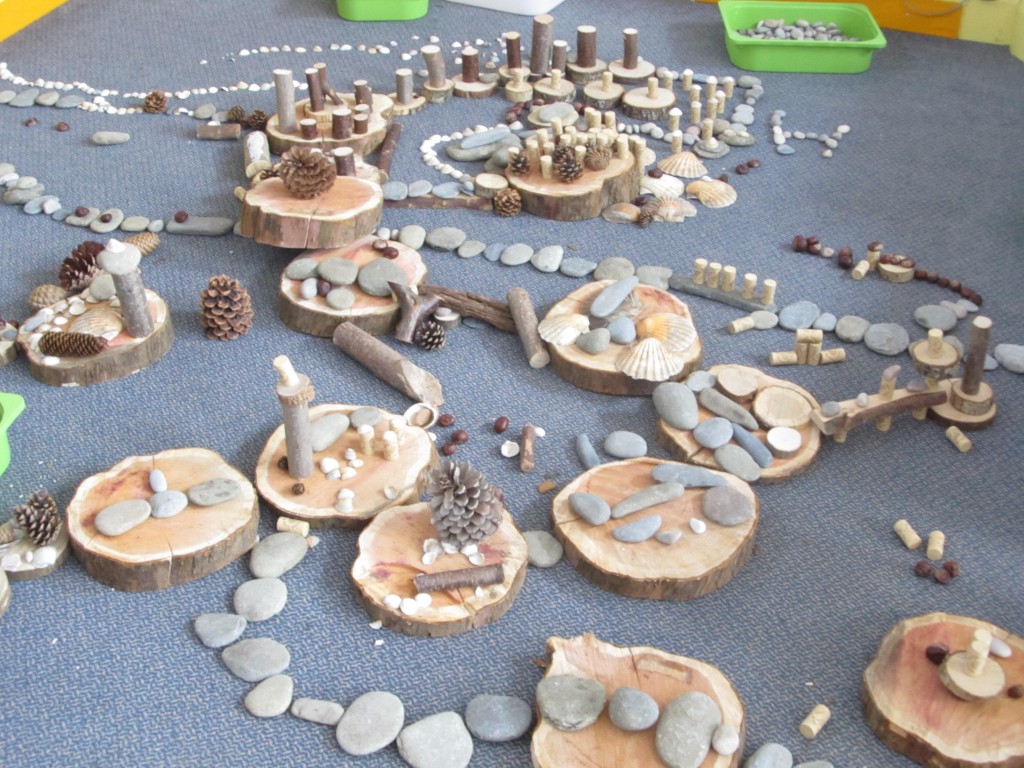 Working with Intelligent Materials
Working with Intelligent Materials
This workshop looks at the value of using intelligent materials – objects that children can use in a multitude of different ways, exploring different possibilities, to express their imagination. Combining natural or recycled materials, the child is at the center of their learning as they use their imagination to create various arrangements/constructions/narratives as they combine the objects. Materials are explored in many ways, following the child’s line of enquiry but with the practitioner sharing their journey of discovery – researching and learning together.
The exploration of materials encourages open-ended discovery and a focus on process. Natural and recycled materials can be seen as intelligent materials offering many possibilities for exploration and associated learning. Creativity and curiosity underline children’s emergent thinking and development.
We will look at examples from Reggio Emilia which has had a long tradition of working with natural and recycled materials and gain insights from Frobel (gifts), Nicholson (loose parts) and Goldschmeid (Heuristic play). We will look at how placing and arranging meets many learning and development aspects of the EYFS. The workshop will look at ways in which intelligent materials can be incorporated and developed in early years settings. We will look at example of loose parts indoors and in the outdoor environment.
From this course you will learn to:
- Provide appropriate resources to encourage open ended exploration
- Prioritise children taking the lead role in their learning
- Learn about various pedagogies that support investigation with intelligent materials
- Gain ideas for where to resource materials
- Suggestions for open ended explorations and longer term projects
- Practical session for practitioners to explore a selection of materials, gain confidence and share the experience of making creations.
The Language and Dialogue of Photography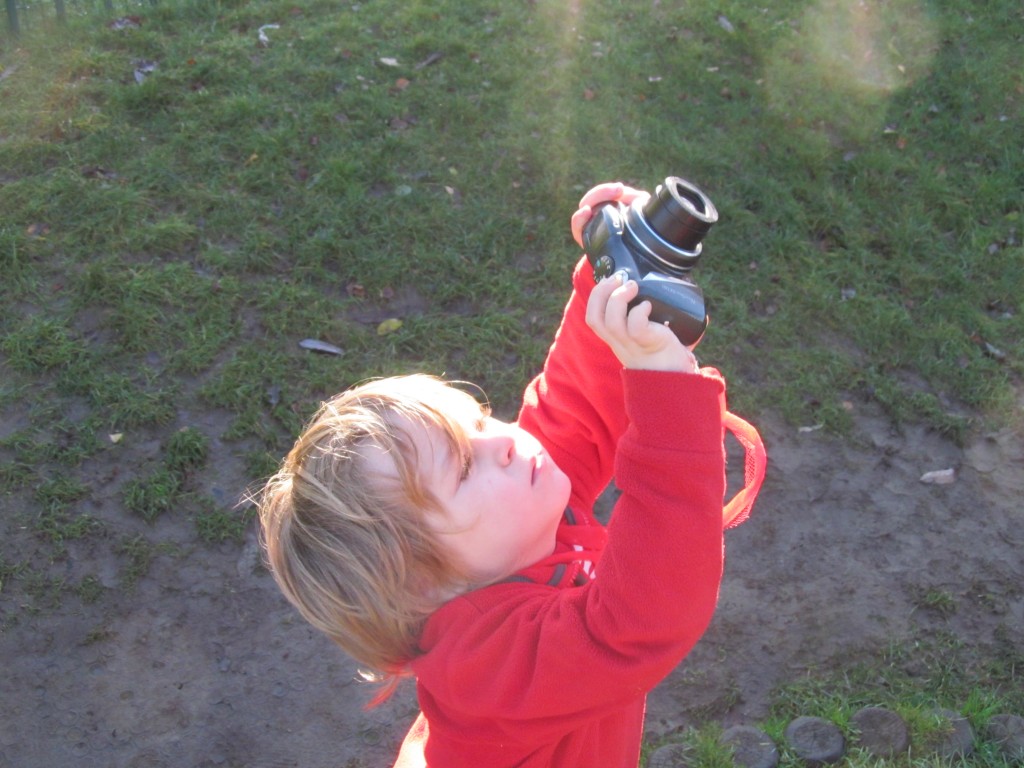
Photography is a powerful tool for communication and creative expression. It is an extremely versatile medium. It is visual but it often becomes more about language – as it has so much capacity to stimulate and open up dialogue by allowing children to express their thoughts and their way of seeing the world – encouraging children’s voice.
For the practitioner it gives a unique insight into the children’s interests, the way the child sees their environment, friends, learning etc. Children use cameras in creative ways – unrestricted by convention – being so direct and curious and the results can be profound with the images being the starting point for further exploration. The children’s use of cameras puts them at the center of their learning – they can use the camera to document their investigations – creating their own learning stories. The images provide a wonderful way to reflect on learning and help evaluate. Photography can support all areas of children’s research and exploration in this way and when children document their own work they are more engaged with the images and gain a deeper understanding of their own learning process.
We will look at the use of photography as a way of consulting with children and understand how photography can be used as a tool for self-evaluation. Photography can also be using to support story telling. Images can be taken to illustrate the story, stimulate conversation and provide a starting point. Children acting out a story can be photographed, again providing a way to revisit and reflect on the story. Photography can be seen to embrace all areas of the EYFS and characteristics of effective learning. I believe there should be a children’s camera in every classroom as an important resource with which children can support and construct their learning. There will be information about the practicalities, best cameras for children, reviewing images, storage, software and how to successfully introduce photography to young children. There will also be a practical activities so do bring a camera or smart phone if you can!
From this course you will:
- Learn how photography can be a versatile tool for children’s creative expression
- Discover the potential for photography to stimulate communication – children’s voice
- Learn how photography can support all areas of learning by children documenting their own work
- Using photography as a way of consulting with children.
- Understand how photography can be used as a tool for self-evaluation
- Learn about practicalities: best cameras for children, reviewing images, storage, and software.
- How to successfully introduce photography to young children
- Learn about image permissions
- Opportunity for practitioners to get creative with cameras
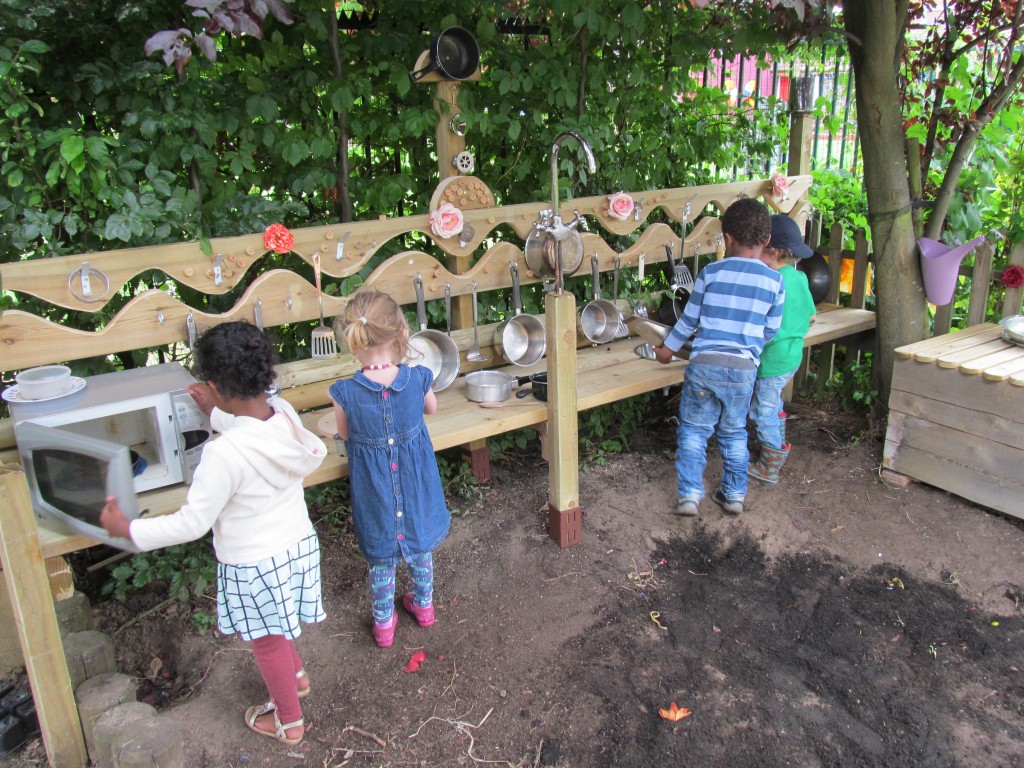 The Enabling Environment – The Third Teacher
The Enabling Environment – The Third Teacher
The impact that the environment can have on learning, development and creativity is profound. We will look at the aspects of the environment that play a part in encouraging creativity and wellbeing. We will look at the influence of other pedagogies which have influenced current practice focusing on Reggio Emilia. In the Reggio Emilia approach they refer to the environment as the Third Teacher – showing the importance they place on creating the right environment for learning and growth and for children to construct their own learning. We will look at an in-depth environment audit – a resource that could be used to evaluate your current learning environment and plan for possible improvements. We will consider the many elements that contribute to creating an outstanding environment from aesthetics, access to intelligent materials, opportunities for inquiry based learning to environmental factors and sustainability. We will discover how the environment impacts on wellbeing and learning dispositions. The session will also encourage an approach whereby the outdoor environment is seen as equally important to the indoor environment in providing rich learning opportunities.
From this course you will:
- Develop an understanding of the importance of the environment for learning, development and well being
- Learn about the Reggio Emilia approach to the environment referred to as the Third Teacher
- Learn how the environment can support creativity and imagination
- How environments can facilitate and encourage communication
- Learn how the environment can support open ended enquiry based learning
- Look at ways that physical development can be enhanced
- Examples and case studies of inspiring indoor and outdoor environments
- Complete an in-depth environment audit
- Consulting with children – examples of children’s feedback and contributions to design ideas
Characteristics of Effective Learning

This course is designed to deepen practitioner knowledge of the Characteristics of Effective Learning, focusing on the process of how young children learn. The Characteristics of Effective learning are fundamental to every child in becoming a lifelong learner. This workshop aims to raise their profile, to gain insights in current thinking and to propose new ways in which we can monitor children’s progression in this vital area. We will look at Playing and Exploring: looking at how we support each child as a unique individual, how we encourage independence and how we encourage children to construct their own learning through play by following their own curiosity and lines of interest. Active Learning: We will think about dispositions for learning, motivation for learning and engagement – looking at the Leuven scales of involvement and well-being. In terms of persistence we will look at the work of Dweck in terms of growth/fixed mind-set. With Creating and Thinking Critically we will focus on creative and critical thinking as a process, I will emphasise the importance of creativity as a fundamental life skill that impacts on all areas of learning and also impacts on young children’s long term outcomes to become resourceful and resilient adults. The workshop will focus on the practitioner’s role in fostering creative and critical thinking skills. The workshop will consider ways in which we can monitor children’s progression of the characteristics especially in relation to their developing thinking skills. There will also be an opportunity to reflect upon values and how these relate to the Characteristic of Effective learning especially in terms of our view of children and their ability to construct their own learning.
From this course you will:
- Gain a deeper knowledge of the Characteristic of Effective Learning
- Explore theories of play based learning
- Engagement: Gain an understanding of the Leuven scales of involvement and wellbeing
- Gain a deeper understanding of what creativity means
- Learn why creativity is so important in education and in life in general
- Look at factors that contribute to encouraging and nurturing young children’s creativity
- Investigate the role of the teacher in extending creative and critical thinking
- The importance of documentation and reflective learning practice
- Gain insight into how to monitor progression
